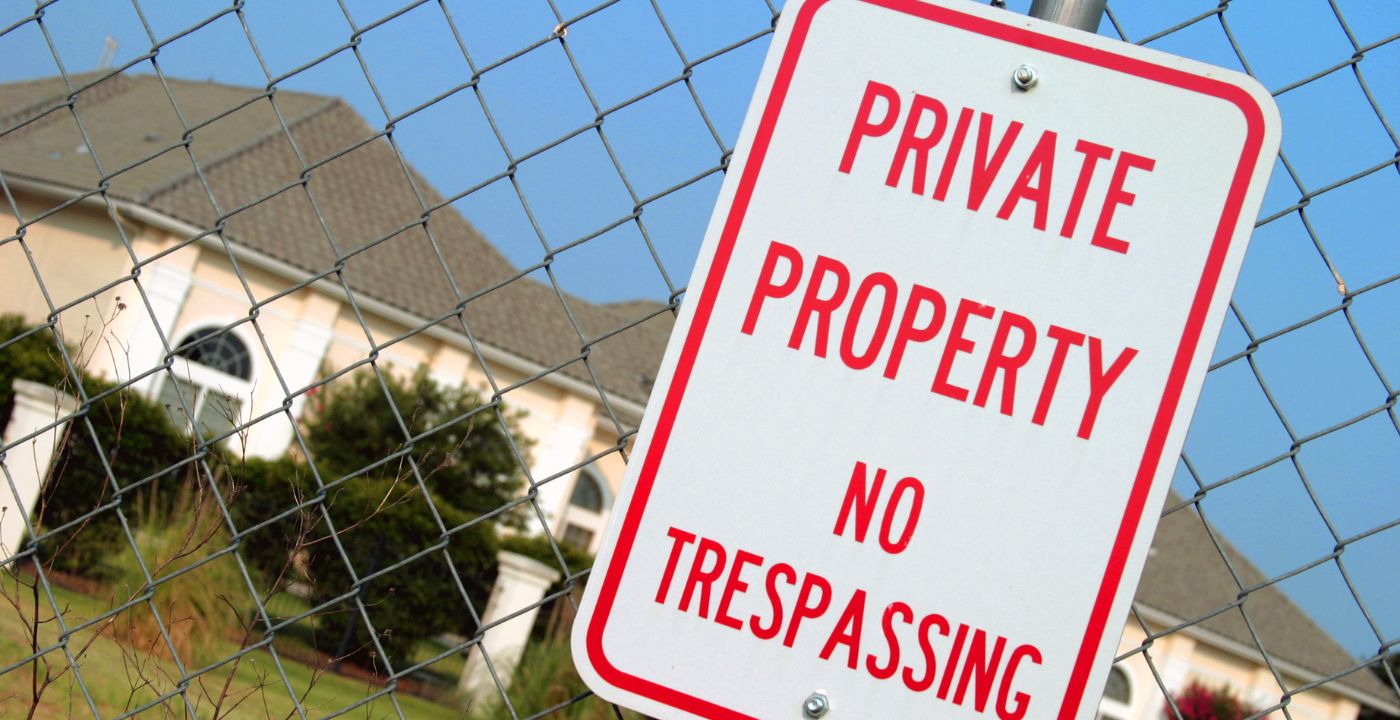In Rhode Island, dealing with squatters- people living on property they don’t own without permission- can be tricky for property owners. Understanding squatter’s rights is key to handling these situations.
Read on to learn what rights squatters have in Rhode Island and how to go about removing them from your property.
Key Summary
- In Rhode Island, squatters can legally own a property after 10 years of continuous, open living without owner interruption.
- To claim ownership, squatters must not have permission, physically occupy, visibly use, exclusively hold, and continuously occupy the property.
- For property owners to remove squatters, they must go through the judicial eviction process that includes legal notices and court procedures.
- Property owners are advised against personally evicting squatters.
- Preventing squatting involves regular property checks, securing vacant properties, and legal deterrents like no-trespassing signs.
What Rights Do Squatters Have?
Across the United States, the concept of squatters’ rights, or adverse possession, differs by state, offering specific conditions under which individuals may acquire rights to a property over time.
ℹ️ Did you know? Squatters’ rights were brought over to the US from British property laws. They were established to use abandoned properties and prevent unjust evictions.
In Rhode Island, the framework for these rights is detailed in Section 34 of the Rhode Island General Law. This legislation establishes the criteria under which squatters can gain legal ownership of a property through adverse possession.
For squatters in Rhode Island to lay claim to a property, they must reside there continuously and openly for a decade, without any objections from the owner, allowing them to potentially secure legal ownership.
How Do Squatters Claim a Property?
As already mentioned, Rhode Island Law dictates that squatters may assert legal ownership over a property by residing on it for ten years. While the law does not necessitate the payment of property taxes or a formal deed (color of title) for adverse possession claims, these actions can support a squatter’s case in legal proceedings.
To successfully claim a property, squatters must adhere to the following criteria:
- Live on the property without permission (Hostile/Adverse Possession).
- Physically occupy the property like an owner (Actual Possession).
- Make their living there obvious to anyone (Open and Notorious Possession).
- Not share the property with others (Exclusive Possession).
- Stay continuously for ten years without leaving (Continuous Possession)
Claiming Adverse Possession
After meeting these conditions, squatters must file a quiet title action in court to claim ownership. This step involves proving they’ve lived on and cared for the property openly for ten years. They’ll need evidence like documents showing long-term occupancy, any improvements made, and neighbor statements.
The Process and Challenges
The process is complex and usually requires legal help. Squatters need to clearly prove they’ve met all conditions for ten years. Property owners can interrupt this process by challenging the squatter’s occupancy, potentially resetting the ten-year countdown.
For both property owners and squatters, understanding Rhode Island’s adverse possession laws is crucial. Owners should monitor their property to prevent squatter claims, while squatters must be prepared for a detailed and lengthy legal process to claim ownership.
How Can You Remove Squatters in RI?
Removing squatters from your property in Rhode Island involves navigating the state’s legal eviction process. This process, while effective, can be lengthy and may incur significant expenses.
The judicial eviction process is the formal route through which property owners can legally compel squatters to leave their property. This process is designed to ensure that both squatters’ and property owners’ rights are respected according to state laws.
Here are the steps involved in removing squatters in Rhode Island:
1. Issuing Notices
5-Day Notice to Pay Rent
This notice can be issued to squatters who have been living on the property for over two weeks. It informs them of the amount they must pay to legally stay on the property. If the squatter fails to pay within the given timeframe, the landlord can proceed with filing an eviction lawsuit.
Notice to Quit
Landlords can serve squatters with a notice to quit in cases where there is no lease agreement in place or the agreement has expired. The notice period varies:
- 10-day notice for week-to-week tenancies.
- 30-day notice for month-to-month tenancies.
- 90-day notice for year-to-year tenancies.
For Illegal Activity
Squatters committing illegal activities on the property can be evicted without prior notice.
Filing an Eviction Lawsuit
If the squatter does not comply with the notice, the landlord must file an eviction lawsuit with the court. This step formally initiates the judicial eviction process.
2. The Court Process
Both the property owner and the squatter will have the opportunity to present their case before a judge. This hearing is crucial for landlords to demonstrate that they have followed all legal requirements for eviction.
If the court rules in favor of the landlord, a judgment for eviction will be issued. The landlord can then obtain a writ of execution, which authorizes law enforcement to remove the squatter from the property.
3. Law Enforcement
Once a court issues a writ of execution, the sheriff’s office takes on the responsibility of enforcing the eviction order. This ensures that the removal of squatters is conducted legally and safely, avoiding potential conflicts or violations of rights.
Landlords are strongly advised against attempting to evict squatters by themselves, as self-help measures can result in legal consequences, including lawsuits for wrongful eviction or even assault.
The presence of law enforcement not only legitimizes the eviction but also provides a buffer against potential escalation, ensuring the process adheres to the rule of law and respects all parties’ rights. Engaging the sheriff’s office is a crucial step in the legal eviction process, safeguarding property owners from the risks associated with personal confrontation.
4. Considerations for Landlords
Landlords navigating the eviction of squatters in Rhode Island must consider several important legal aspects to protect their rights and property effectively. These include:
Disability Provisions
Rhode Island law includes provisions that allow property owners to extend the time to start eviction proceedings if they are legally disabled. This means landlords can dispute adverse possession claims or initiate eviction even 10 years after their disability is lifted, offering an additional layer of protection.
Legal Support
Given the complexities of the eviction process, seeking legal advice from an attorney experienced in Rhode Island property law can be invaluable.
This ensures that all actions taken are within legal bounds and increases the likelihood of a favorable outcome. Removing squatters from your property in Rhode Island requires a comprehensive understanding of the judicial eviction process and strict adherence to legal procedures.
How Can You Prevent Squatters in RI?

Preventing squatters from taking up residence on your Rhode Island property involves a proactive and multifaceted approach. It’s not just about keeping an eye out; it’s about taking definitive steps to safeguard your property against unauthorized use. Here are some strategies to help property owners protect their investments:
Regular Property Checks
Frequent inspections of your property can help identify any signs of unauthorized entry or occupancy early on. These checks can be as simple as a walk-around to inspect for signs of break-ins or as thorough as detailed inspections of locks, windows, and doors.
Securing Vacant Properties
If your property is vacant, ensure it is securely locked and that all potential entry points are fortified. Consider installing security systems, including alarms and motion-sensor lights, to deter squatters and alert you to any unauthorized access.
Promptly Address Unauthorized Occupancy
If you discover squatters, act quickly. Contact local law enforcement to understand your legal options and start the eviction process if necessary. The longer squatters stay, the more difficult it may become to remove them.
Clear and Visible No-Trespassing Signs
Posting no-trespassing signs prominently around your property can serve as a legal deterrent against squatting. These signs make it clear that the property is privately owned and that unauthorized entry is not allowed.
Maintaining Up-to-Date Records
Keep all property records, including ownership documents, utility bills, and photographs of the property, current and easily accessible. These documents can be crucial in proving ownership and the unauthorized nature of the squatters’ occupancy.
Building Relationships with Neighbors
Neighbors can be invaluable allies in watching over a vacant property. Inform them if the property will be vacant and provide contact information in case they notice any suspicious activity.
Hiring a Property Manager
If you’re unable to regularly check on the property yourself, consider hiring a property manager. Property managers can oversee the property’s maintenance, security, and regular inspection, ensuring it remains squatter-free.
What is the Difference Between Squatting and Trespassing?

Squatting and trespassing are two different things in the eyes of the law. Trespassing is a clear-cut crime; if someone goes onto someone else’s property without permission, they can be arrested. Trespassers usually just come and go quickly without wanting to stay for long.
Squatting is more about staying and using property without permission, but with a twist. Over time, squatters might try to claim the property as their own through adverse possession allowing them to own the property. Squatting deals with who owns the property, so it’s sorted out in civil court, not criminal court like trespassing.
Frequently Asked Questions
Can You Sell a Property with Squatters?
You can sell a property that has squatters, though it’s typically to investors or companies that pay in cash and are experienced in handling such situations.
These buyers are equipped to deal with properties facing challenges like squatter occupancy and understand the eviction process. Consequently, the offer you receive may be lower than market value, but it offers a way out from the responsibility of removing squatters yourself.
What is the Shortest Time for Squatters’ Rights in Rhode Island?
In Rhode Island, squatters must occupy a property for a minimum of ten consecutive years to claim squatters’ rights. This ten-year rule is set to ensure that only those truly committed to the property can attempt to claim it as their own.
How Do I Get Someone Out of My House in RI?
To remove someone from your property in Rhode Island, the first step is to issue a legal eviction notice, clearly stating the reason for eviction and the time frame they have to leave. If the occupant does not leave by the specified date, you’ll need to follow through with the judicial eviction process by filing a case in court.
Do Squatters Have to Pay Property Tax in RI?
In Rhode Island, paying property taxes isn’t required for squatters to claim rights or adverse possession, with the state prioritizing a ten-year occupation rule instead. However, squatters who pay property taxes might bolster their court claim by showing a commitment similar to a property owner’s. The key requirement is still ten years of continuous and open property use.
Secure Steps
Navigating squatters’ rights in Rhode Island involves understanding specific legal guidelines and taking proactive steps to manage property rights effectively. This guide has covered key aspects, including how squatters can claim property, the eviction process, and strategies to prevent squatting.
With this knowledge, property owners in Rhode Island can confidently address squatters’ rights, ensuring their properties are protected and legal standards are met.
Looking to sell your home with squatters? We’ll buy it for cash. Contact us today.





